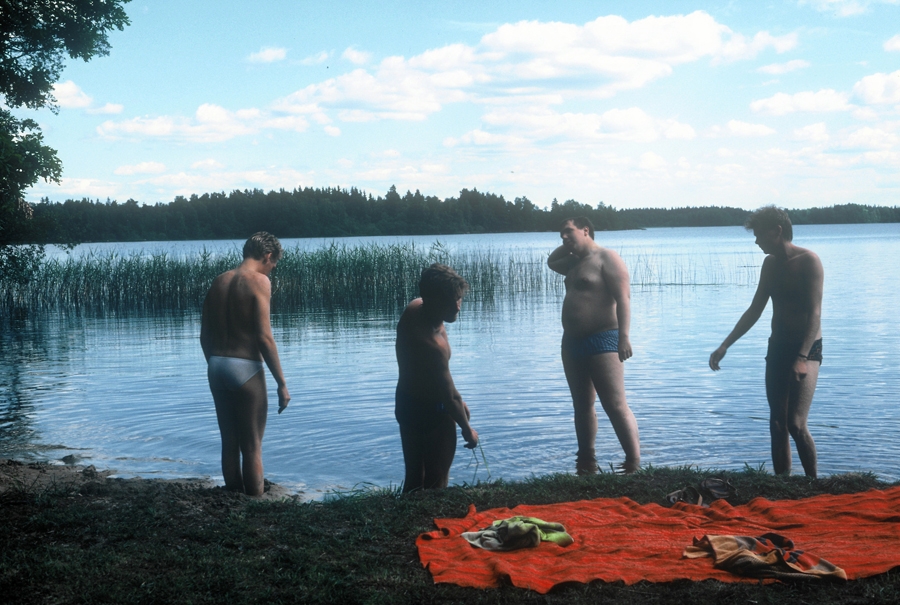Magnus Bärtås’s most recent film, Biography (2012), tells the story of Ola S. Svensson, a chubby and eloquent boy with a convulsive laugh who became a cleaner and a student politician before dying of AIDS in 1995. In it, two young men, identically dressed, move around an empty contemporary classroom and use a gavel, a tambourine and an overhead projector to highlight the names of the people mentioned in a narrative that is told via a number of different voices (theirs included). Footage from Svensson’s youth is interspersed with these modest images. The story is a sad one, about an outsider with special skills whose short life coincided with major changes in Swedish society. The film is typical of Bärtås’s method of identifying something factual and seemingly ordinary, but which resides beyond normality, and then tracing its trajectory over time and space – creating a form of polyphonous portrait along the way.
Showing his films in exhibitions as well as in film festivals, Bärtås specialises in weaving together stories that quietly insist on being told. Sometimes they are orchestrated in installations, at other times they appear as coauthored books, such as All Monsters Must Die (with Fredrik Ekman, 2011). Its starting point is a tourist trip to North Korea, but the book ends up as a mix of travelogue and a reflection on obedience, sectarianism and the function of art. Its lead protagonists are the real-life Korean actress Choi Eun-Hee and the monster Pulgasari (who appeared in a lost South Korean kaiju film, from 1962, based on a Korean folk story that was remade, by the same director, according to revolutionary ideals in North Korea in 1985). Choi also features in the film that makes up one of two parts of Bärtås’s practice-based PhD, You Told Me – Work Stories and Video Essays (2010), which examined narrative models in contemporary art, and the video essay as an artwork. This year his films will be shown at Oberhausen film festival, Haus der Kulturen der Welt, Berlin, and Reina Sofía, Madrid, among other places.
This article originally appeared in the March 2013 issue.
